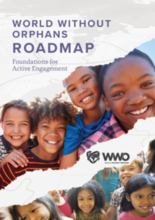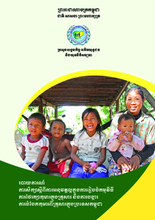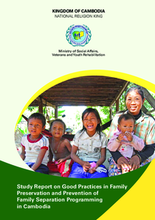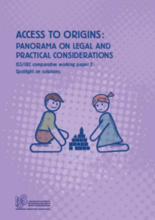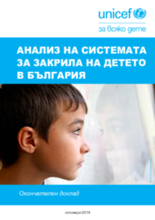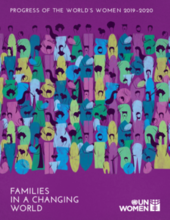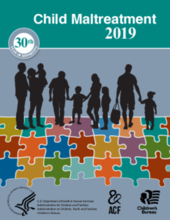Displaying 6671 - 6680 of 14392
World Without Orphans Roadmap: Foundations for Active Engagement is a result of broadscale collaboration
among global, regional, and national leaders across many faith communities. It is informed by experts
from global organizations that lead the way in identifying best practices for caring for vulnerable families
and children.
Sri Lanka's National Policy on the Alternative Care of Children outlines a comprehensive range of alternative care options and encourages the reforming of all formal structures that provide at-home and out-of-home services for children deprived of care and protection or at risk of being so. This policy also extends to children under care of the Juvenile Justice System. It provides policy solutions to programming for children at risk of family separation and facing deprivations such as child abuse, neglect, child labor, poverty, addiction, imprisonment, human trafficking, mental and physical disabilities, HIV/AIDS, domestic violence, orphanhood, abandonment and displacement etc. The policy also takes into consideration and encompasses provisions to children who are forced to live and work on streets.
This policy brief draws on the substantial evidence on the health, educational, and economic benefits of family-friendly policies to recommend four transformative shifts in workplaces.
This report (in Khmer) provides in-depth analysis of programs of 7 different NGOs in Cambodia working on the prevention of family separation and family preservation in order to respond to risks related to physical and mental well-being and domestic violence.
This report provides in-depth analysis of programs of 7 different NGOs in Cambodia working on the prevention of family separation and family preservation in order to respond to risks related to physical and mental well-being and domestic violence.
This paper is aimed at supporting the professionals who accompany adoptees and their families in the process of searching for one's origins, and the various authorities with the competency to make decisions on this matter.
This research is based on a stock-taking of the current situation. It is based on a comprehensive literature review and a genuine primary research with service users as well as policy makers, service providers, children and families.
This report presents data on children at risk and separated from their parents in Moldova.
Drawing on the best available data from around the world, this Report proposes a comprehensive agenda for key policy actors – including gender equality advocates, national governments and international agencies – to make human rights a reality for all women and girls, no matter what kind of family they live in.
The U.S. National Child Abuse and Neglect Data System (NCANDS) is a federally sponsored effort that collects and analyzes annual data on child abuse and neglect. The data that are collected are submitted voluntarily by the 50 states, the District of Columbia, and the Commonwealth of Puerto Rico and published in an annual report. This document provides a summary of key information from the 2019 report.

